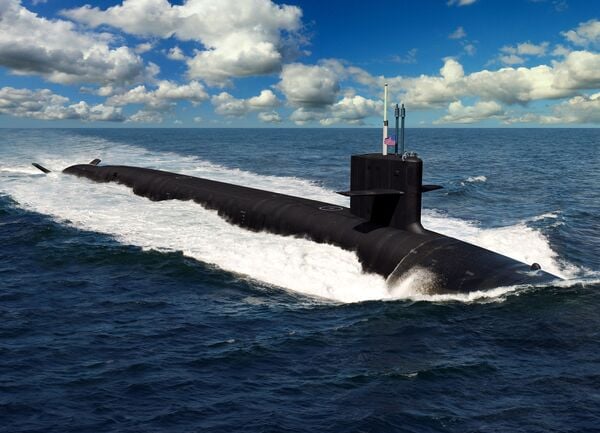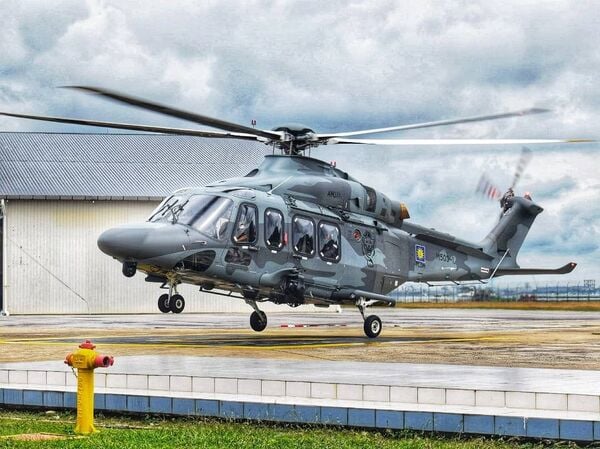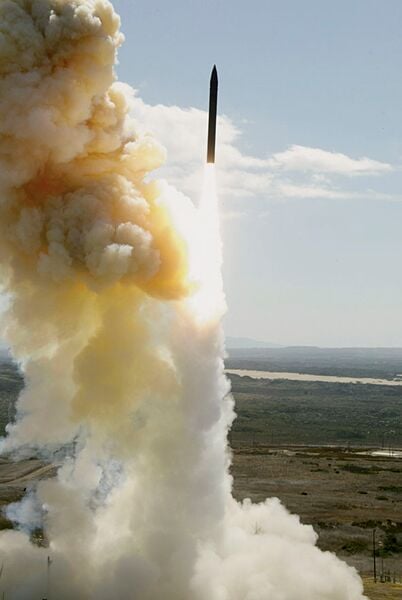- About
- Intara
- Capabilities
- Advisory
- Resources
- News
- Store
Struggles continue for US Navy to meet submarine-building requirements, commitments
30 October 2023
by Michael Fabey


Columbia-class submarine construction remains a Pentagon priority. (US Navy)
The US Navy (USN) has continued to face difficulties in delivering Virginia-class attack submarines (SSNs), maintaining existing vessels, and gearing up for the construction and delivery schedule for the Columbia-class ballistic missile submarines (SSBNs) meant to replace the Ohio-class boats for the US fleets.
Meeting the requirements for the trinational Australian, UK, and US (AUKUS) agreement to bolster the Australian submarine fleet will likely mean a dip in the US submarine fleet below its future goals and needs, according to a recent report by the Congressional Budget Office (CBO).
“There's a lot of talk around AUKUS, and obviously we're going to do everything we can to support our customer in that regard, but the fact is this supply chain still remains very fragile,” Jason Aiken, executive vice-president and chief financial officer for General Dynamics (GD), whose Electric Boat division is one of the two countries' two submarine builders for Virginias and Columbias, told investment analysts on 25 October during a quarterly earnings call.
Two Royal Malaysian Navy helicopters collide mid-air
23 April 2024
by Ridzwan Rahmat


A file image of a Royal Malaysian Navy AW139 helicopter landing at Lumut. One of the airframes was involved in a 23 April 2024 accident that killed 10 personnel. (Royal Malaysian Navy)
Ten personnel are dead after two Royal Malaysian Navy (RMN) helicopters collided during a rehearsal for the service's 90th anniversary parade, the service disclosed in a media statement on 23 April.
All personnel are from the two helicopters involved, namely a Leonardo AW139 medium-lift rotorcraft and an AS 555SN Fennec airframe, the statement added.
The service has since confirmed to Janes that the AW139 bears the serial number M503-3 while the Fennec was registered with the serial number M502-5.
The aircraft collided at 0932 h local time while they were flying over the RMN's Lumut naval base.
A video of the mid-air collision that began circulating on instant messaging apps shortly after the accident indicates that the Fennec's main rotor clipped the AW139 on the latter's port side while both aircraft were making a right turn during a fly-past segment of the rehearsal.
Lockheed Martin snags multibillion-dollar NGI contract
16 April 2024
by Meredith Roaten


The Ground-Based Interceptor was launched from Vandenberg Air Force Base in California to simulate a combat launch from Fort Greely in Alaska. (Missile Defense Agency)
The Next Generation Interceptor (NGI) competition has come to an end as Lockheed Martin was selected as the prime to continue development of the weapon through critical design review (CDR), all-up round qualification, integration with the Ground-Based Midcourse Defense (GMD) system, and flight testing, the US Missile Defense Agency (MDA) announced on 15 April.
While no dollar amount was attached to initial statements on the contract, the Pentagon's Cost Assessment and Program Evaluation (CAPE) said in a 2021 report that it expected NGI to accrue roughly USD17.7 billion in contract costs. The downselect for Lockheed Martin will lead to a follow-on production and emplacement contract to support initial operational capability for NGI by the fourth quarter of fiscal year (FY) 2028, according to the announcement.
The MDA cited “technical maturity”, “technical rigor” in the design process, and contract-provided performance date as key factors that supported its decision.
Lieutenant General Heath Collins, director of the MDA, called the decision “very difficult” in a statement but said the agency was “confident”.
USMC plans to buy high-power ULTV variant
11 April 2024
by Aaron Lin


A marine programs a counter-unmanned aircraft system on a Light Marine Air Defense Integrated System (LMADIS) during a predeployment training exercise at Marine Corps Air Ground Combat Center, Twentynine Palms, California. (US Marine Corps)
The Ultra Light Tactical Vehicle (ULTV) programme – a US Marine Corps (USMC) replacement for the ageing Utility Task Vehicle (UTV) – will now include a variant with more exportable power, according to Janes analysis of budget documents.
The fiscal year (FY) 2025 budget request is the first time the ULTV-High Power (ULTV-HP) has funding for procurement, adding up to roughly USD5.99 million for 40 vehicles in that year. USMC justification documents indicate that it “provides exportable electrical power generation in support of the requirements for [the] kill web integrating system”.
The US Navy (USN) has continued to face difficulties in delivering Virginia-class attack submarines ...
Latest Podcasts
Iran Israel analysis
In this podcast Janes analysts discuss the Iranian attacks on Israel on the 14 April. They highlight the military systems used by Iran and the performance and impact of these on Israel. They also discuss the implications of this attack goi...
Listen nowJanes Case Studies
Using Janes Intara to build a common intelligence picture: Russian build up on the Ukrainian border
View Case StudyNews Categories
 Security Details
Security Details